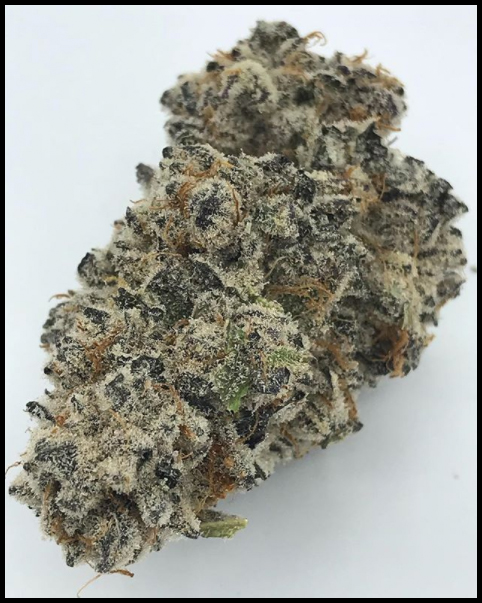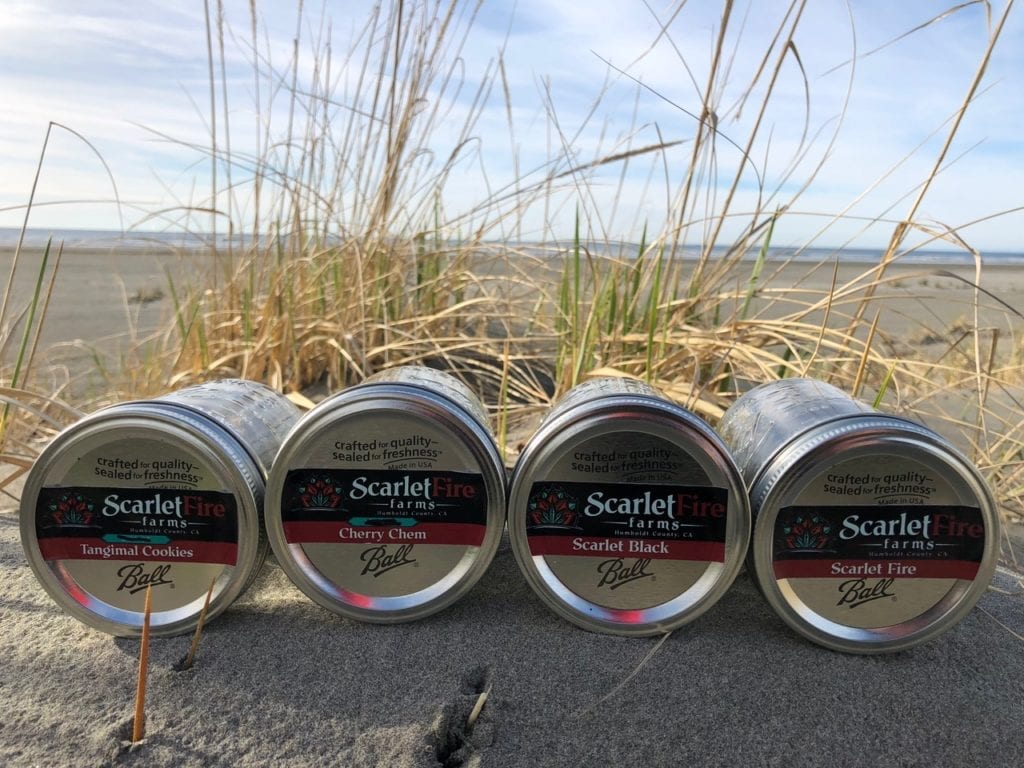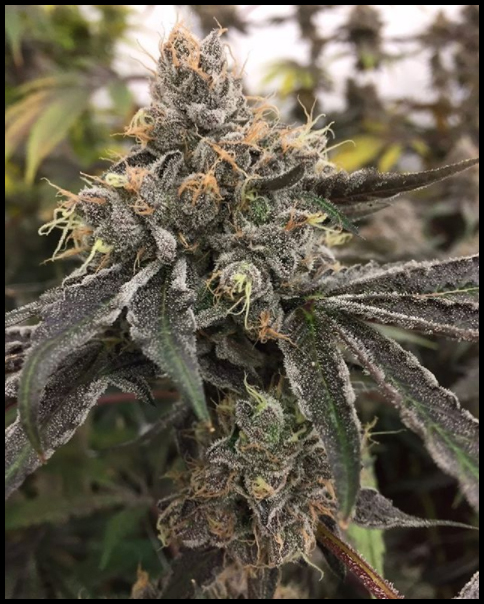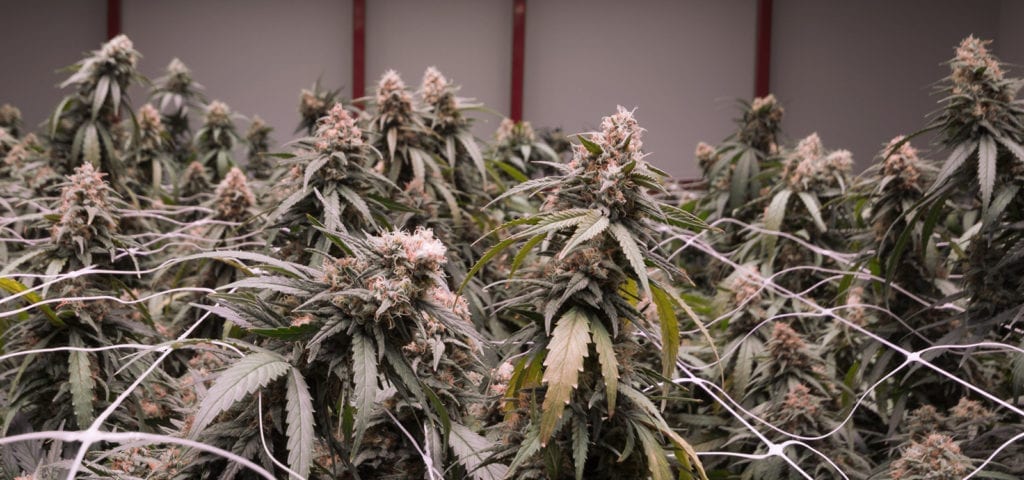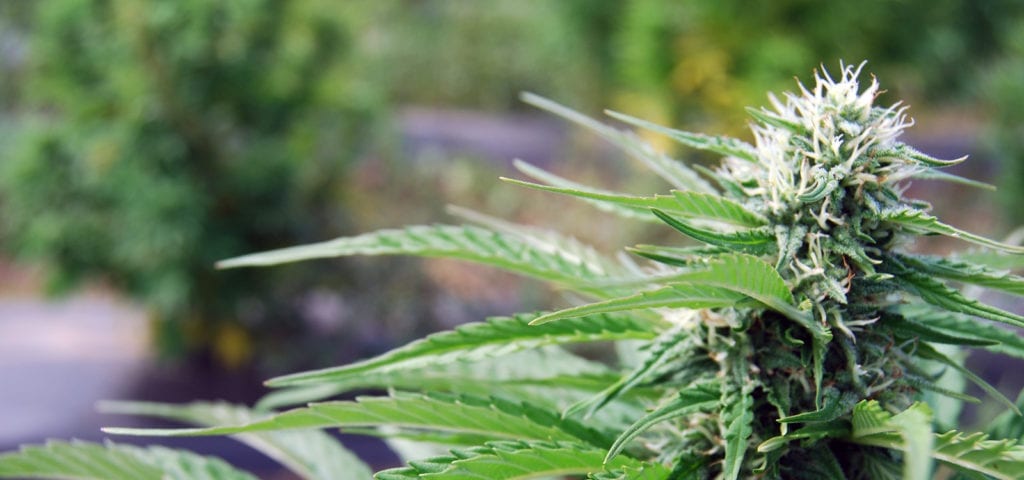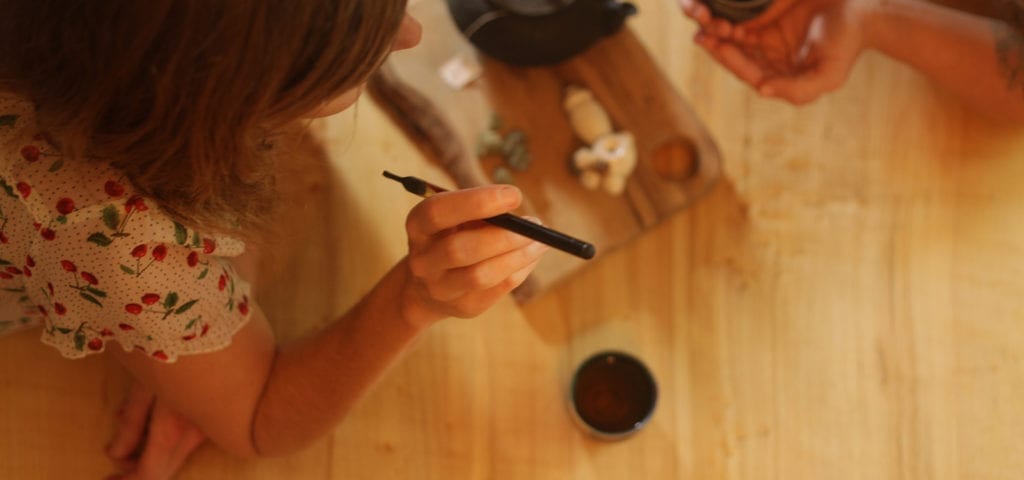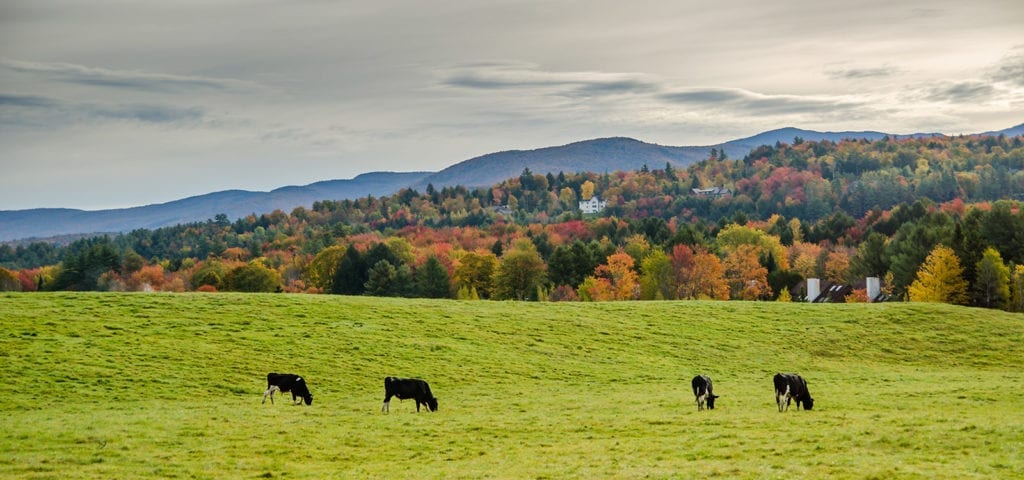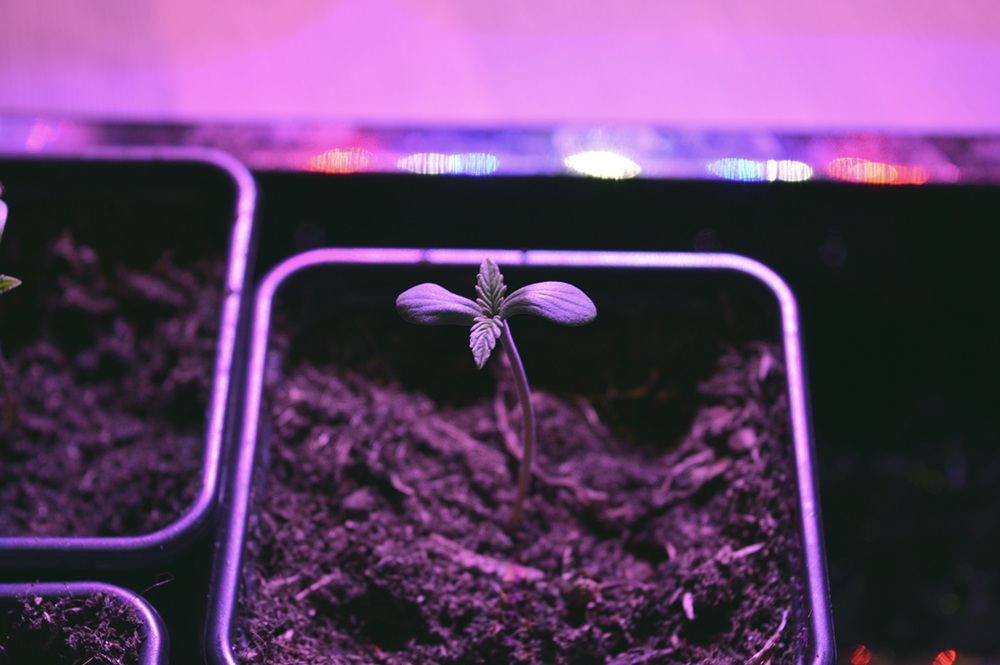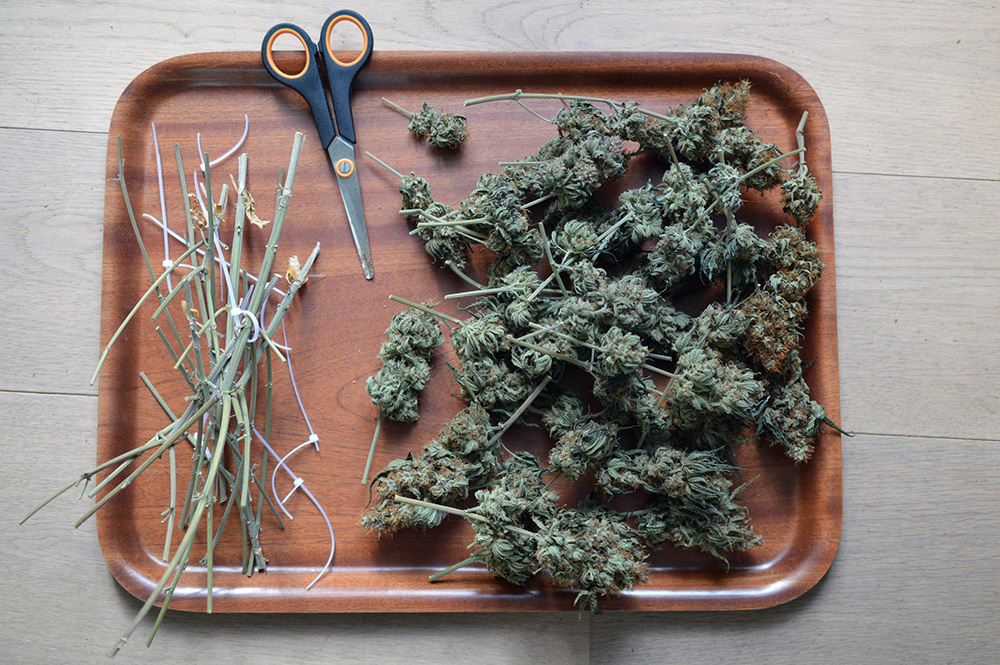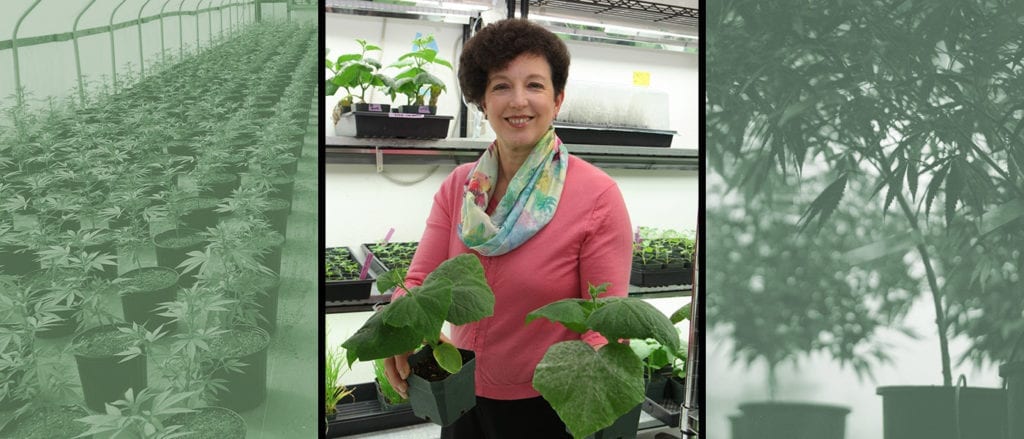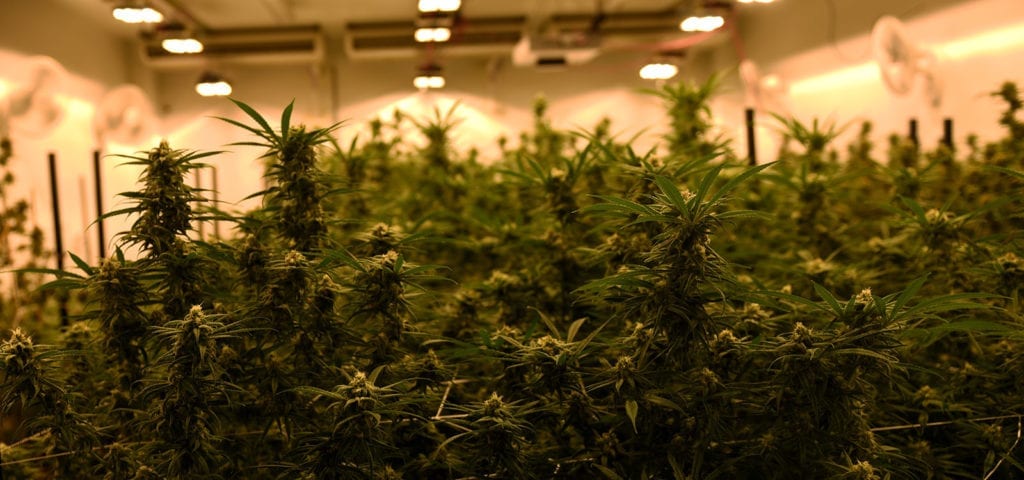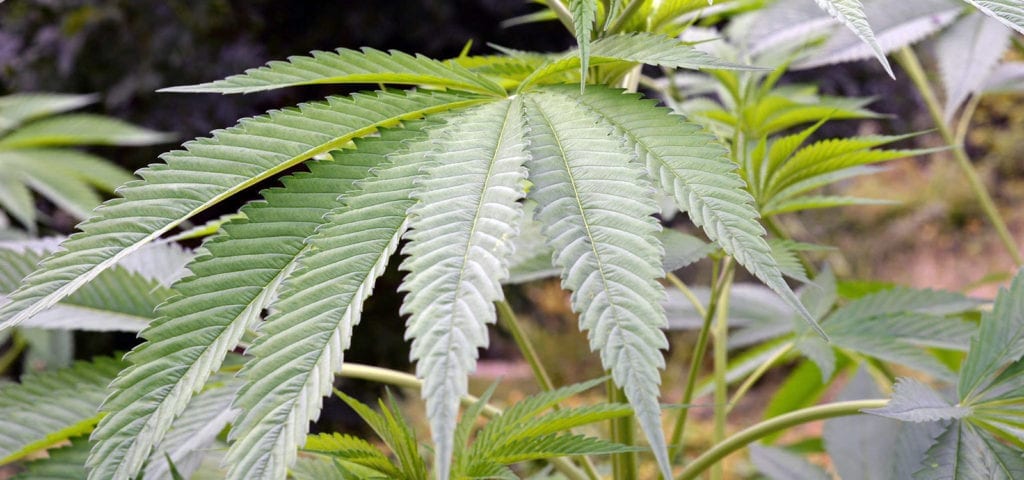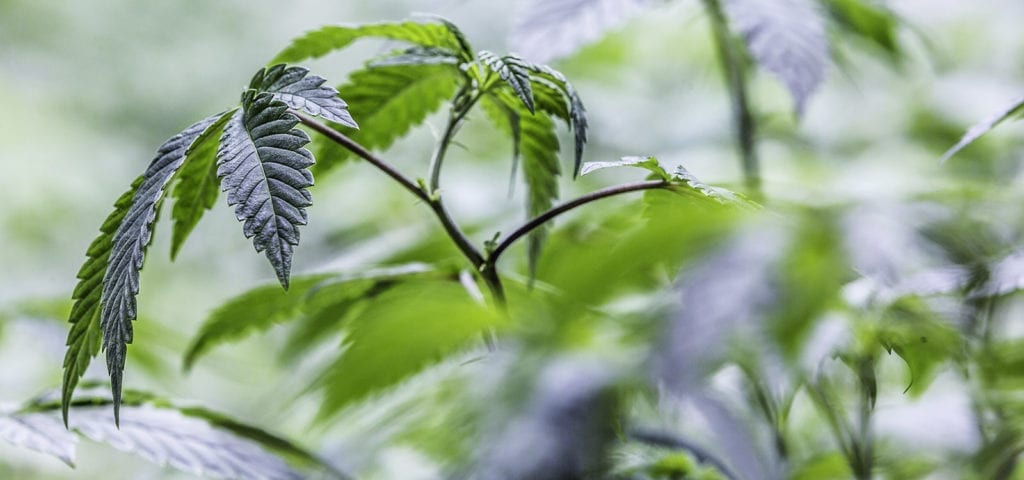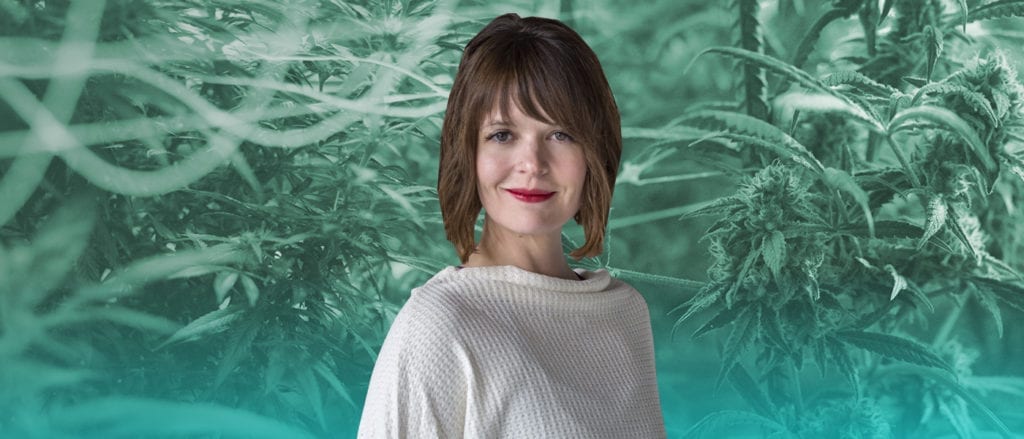Stacey Mulvey is the founder of Marijuasana, a company that has her traveling between major cities around the country — from Anchorage, Alaska to Boston, Massachusetts and everywhere in between — to teach cannabis- and hemp CBD-infused yoga classes.
In this episode of the Ganjapreneur.com podcast, Stacey joins our host TG Branfalt to talk about the intersection of cannabis and mindful movement exercise, what a typical cannabis yoga class looks like and how they help bring people together to reinforce the cannabis community, and the legality of social cannabis use in places where the plant has been legalized. They also discuss the educational side of these classes, how cannabis and CBD can help one achieve a more internal perspective while exercising, and more!
Listen to the interview via the player below or scroll further down to read a full transcript of this week’s Ganjapreneur.com podcast episode.
Listen to the interview:
Read the transcript:
TG: Hey there. I’m your host, TG Branfalt and you are listening to the ganjapreneur.com podcast where we try to bring you actionable information and normalize cannabis through the stories of Ganjapreneurs, activists, and industry stakeholders. Today I’m joined by Stacey Mulvey, she’s the founder of Marijuasana? Which offers hemp and cannabis-infused yoga classes in Denver, Colorado, Washington D.C., Boston, Massachusetts, Portland, Oregon, Seattle, Washington, Anchorage, Alaska, and the fabulous Las Vegas. How are you doing this morning, Stacey?
Stacey Mulvey: I’m doing well, TG. And it’s actually it’s Marijuasana, but you’re not the only person-
TG Branfalt: Ah, I knew I’d botch it.
Stacey Mulvey: Yeah, you’re not the only person that has that issue, so I’m happy to correct.
TG Branfalt: So, aside from me botching the name of your company, tell me about yourself. First of all, how’d you end up founding this company, and what’s your background with yoga?
Stacey Mulvey: I have a background in teaching movement through Pilates and yoga for the past five years. I actually came to teaching mindful movements after working in IT for a long time, and just working in various corporate jobs and realizing that I hated … First of all I hated my job, but realizing I wasn’t being … that I really needed to pay more attention to my body. And then once I was, I was a lot happier and more … just a healthier human in general. And at a certain point decided like, “You know what? I’m tired of buying into the notion that in order to be happy and successful you have to just throw your life away in this mindless corporate job, and do what you don’t like just so you can earn money. And I said, “Okay, I’m gonna be a teacher of this practice that I’ve discovered that’s really benefiting me.”
I went into training to be a Pilates teacher, and it was amazing, and that just kind of set me off on this path of taking trainings in Pilates, and yoga, pole dance, and other mindful movements. And realizing that this was really my passion, and I felt like it was my calling. The whole time prior to my teacher training during my career, if you will, as an IT professional I had always been a cannabis consumer. It was just like part of my identity almost, but of course it was a hidden identity. It was like my true identity that my friends knew, but it wasn’t something that I put out in the world, if you will. It was just like, “Oh, I just do this in the shadows when I’m off of work with the people that really know me, know that I really enjoy cannabis.” Being in Colorado as cannabis legalized there, and starting to work within the cannabis industry simultaneously …
As a Pilates teacher, you’re really your own boss. You know, you’re working for yourself, you’re getting your own clients, you’re working at different studios. My jobs most of the time were part-time in different locations. It was like, “Okay, work out at this studio Tuesdays and Thursdays. And then I work at this other studio Mondays and Thursdays.” And then in the meantime I was doing social media and marketing for a couple companies within the cannabis industry, and it became after while … You know I couldn’t say exactly when it hit, but it was like, “This is something that I should just start to do as a business. I should start to combine these two things and start putting it out there.”
It’s kind of scary at first because there’s the professional reputation that you have, you’re sort of putting on the line as like, “Hey, I have this reputation that I’ve built up as a teacher, and here’s my credibility, and here’s my resume, if you will. And what I’m gonna do is also add to the end of this resume, like at the end of my name, cannabis entrepreneur, Ganjapreneur.” Just stepping out and doing that, it took a little bit of kicking around in my brain, and kind of kicking around with like, “Okay, am I really ready to do this?” And like kind of put this idea out there. But once I did I was really happy that I did, and it really seemed to … It was really well received, I’ll just say that.
TG Branfalt: When’d you decide to use cannabis and hemp in your yoga classes? And if you could describe to me kind of what you started with and what you’re using now?
Stacey Mulvey: Sure. As far as the classes, I mean when I decided to use them in my classes it was once I started as … Once I started Marijuasana, when I said, “Okay, not only will I just do it in my own practice,” because that’s really where it started was me, myself, realizing in my own practice that cannabis and hemp made a huge difference in my experience when I did Pilates and yoga. Because my identity as a teacher, as someone who wants to teach others how to improve their experience in their own body, for a long time I had that knowledge, if you will, that, “Okay. I know that this will make a difference because it makes a difference for me, and I would love to impart this to other people.” I never did it within the professional space because it just wasn’t appropriate. It wasn’t acceptable to say like, “Hey, you know what you should really do is start maybe looking into some CBD oil, or hell you know, just start getting high before you come into this lesson because it would really make a difference, you know?” You just don’t do that.
It was really about a year and a half ago that I started becoming more confident in revealing to my clients that I was in the cannabis industry. It was always kind of in hushed tones, like, “Okay this is my other job. I work in the cannabis industry.” And the ones that were like, “Oh.” You know? It’s like this little kind of flag that you’re like sort of waving. Like your freak flag a little bit. Like, “Hey, I’m into this.” And then they would say, “Hey, oh yeah.” We’d start to share some sort of conversation like, “Oh yeah my husband and I went to a dispensary.” Then we’d feel more inclined to start speaking with each other, and start being more open.
Once that started, I started realizing okay a lot of my clients are in this space and would probably be receptive to something like this, and I’m gonna start teaching classes. It was really important to me that CBD be the focus of what I taught, and that I brought out into the world because everybody has access to CBD, whether or not they realize that it’s legal right now. Everybody has access to it, but not everybody has legal access to cannabis containing THC. I didn’t want to neglect people in other states, or in other markets, that felt like, “Well, that’s not really for me then if you guys are just gonna get high and do yoga. I can’t do that in Nebraska.”
I wanted to focus on CBD because it … Besides the legality of it, it really is a crucial cannabinoid for everybody. For humanity, for wellness. For me it’s about more than just getting high, and I don’t mean just getting high. I don’t mean to degrade that, but including phytocannabinoids in our daily consumption is extremely important to me because I feel like our bodies have been basically starved due to prohibition. We’ve been kept away from a really essential part of our nutrition in phytocannabinoids. Hemp provides CBD and the whole gamut of cannabinoids besides THC, and it was really important to me that people became aware of that, and that my company brought awareness to that.
TG Branfalt: How do you use the CBD in those classes? Do you use a tincture? Do you use a rub?
Stacey Mulvey: We use an oil. We use an oil that we just ingest prior to doing yoga, and then I also serve tea, hemp seed tea. The CBD that you’re getting from the tea is pretty minimal. You’re not getting like a dose of CBD, but it’s another method for … Well, it serves two purposes, that you’re receiving CBD in whatever form, it’s a minimal dose, or a trace amount. And then it also serves as a social lubricant, if you will, that we get to … We’re taking tea, there’s a tea bar, we’re drinking tea together, we’re starting to get to know each other a little bit. It breaks the ice, and it’s a chance for some education to take place. People can ask questions and we can get checked in and settled.
Most yoga classes you get checked in at a front desk and then you go into your studio, you set up your mat, and then everybody sits there looking straight ahead at themselves in the mirror until the teacher comes in and starts to teach the class. With Marijuasana and the tea bar, and the chance to have it be a little more informal, there’s this opportunity for people to get to know each other or feel at least a little more like it’s a community. Even if they’re at that first part not very inclined to speak to each other, they feel inclined to speak to me a little bit and then it takes down the barriers of like, “This is really weird. What’s this class gonna be like? We’re just gonna get high and then we’re gonna do what? How is this gonna go down?”
But yeah, at the beginning of class we’ll drink some tea, take some oil, and then at that point, too, that’s when I start letting people know like, “Hey, if you brought cannabis you’re welcome to start consuming. I have some that I’ll share with you, or if anybody wants to share you’re welcome to.” That’s when everybody starts to consume whatever they choose to. There are some people that do not actually consume cannabis that gets you high. They’ll just take the oil and the tea and that’s it.
TG Branfalt: This sounds like a lot of fun.
Stacey Mulvey: It is so much fun. It really is. It really is, and that’s something I’m poking at, but I haven’t explicitly said yet. But what is really fun about it besides the physical activity is the community aspect. And that’s really important to me that the people do feel like they’re coming together in community because we don’t have that opportunity as cannabis consumers. We don’t have this venue where we can get together and be like, “Hey, I smoke weed, too, and here’s what I use it for.” Some people are just like, “I just do it for fun.” But the vast majority of people that I talk to that come to class have a reason beyond the fun recreational aspect. They do it for some level of pain that they’re experiencing. Whether it’s emotional or physical, or they found some way that it helps them in their life in a wellness aspect, and so they consume cannabis.
Which is usually what brings them out to a yoga class as well, the wellness aspect, but it’s like, “Okay, now that we’re here we can get to know each other and realize that we really are a community, and that there’s not one specific type of person that’s in this class.” We’re very different, there’s a lot of diversity, and we can get to know each other. I’m the only one that’s usually not the local, but it’s like, “Look around the room and realize that all these people live here. You guys are all part of the same city, and you’re all cannabis consumers. Did you know that?” I’ve seen friendships begin from my classes where people start to talk and realize like, “We should be friends,” or, “We should network.” I love to see that because that’s really important to me, the community aspects.
TG Branfalt: I want to dig in with you about some of the social use aspect of yoga and cannabis, but before we do that I gotta take a break. This is the Ganjapreneur.com podcast, I’m TG Branfalt.
If you are looking for a job in the rapidly growing and highly competitive cannabis industry, ganjapreneur.com is the place to look. Visit the Ganjapreneur job board today to browse current openings with cannabis companies throughout the United States. From entry level bud tender positions to executive level career opportunities. You can also create a profile and upload your resume to be discovered by cannabis recruiters. Visit our job board at jobs.ganjapreneur.com to create your profile today.
If you are a business owner, you can post your job openings for as little as $25 on our job board to reach the largest and most engaged audience of cannabis professionals on the web. Companies who are listed in the Ganjapreneur business directory are eligible for free job listings. If you are already signed up, contact us today via the website or send us an email at grow@ganjapreneur.com to activate your unique coupon.
TG Branfalt: Hey, welcome back to the Ganjapreneur.com podcast. I’m your host, TG Branfalt, here with Stacey Mulvey, found of Marijuasana? Did I get that right?
Stacey Mulvey: Marijuasana. Yeah.
TG Branfalt: Marijuasana. I have it written down phonetically three different ways apparently. And she goes around the country and utilizes cannabis and hemp in yoga classes. Before the break you were talking about how in addition to the physical wellness, there’s also the opportunity for people who attend your classes to meet each other, network, and get to know each other. Whenever I write about social use policy, the Denver … There’s a lot of talk about it happening in Maine, and Massachusetts, and Alaska … Yoga classes are really always mentioned as potential social use licensees. They talk about having cannabis clubs, but ultimately you always get yoga studios would be able to get these licenses. Why do you think this is? Why do you think they specifically talk about yoga classes?
Stacey Mulvey: Yeah, I find that really interesting, too, that that gets brought up as an example. I don’t … Part of me thinks it might be because they know that the yoga classes are happening, and so they’re sort of primed for that. That they’re like, “Oh, yeah. Yoga studios.” But also I think it’s because it’s a great model of a business where people do gather that is not necessarily a bar. It’s not a movie theater, or … Any other type of communal space that I’m trying to think of, it’s a way … It’s a business where people do gather and partake in an activity where cannabis works really well.
Obviously I believe that it’s beyond just the community aspect where it’s like, “Oh, yeah.” It fits really well on top of that, the social use license. The yoga itself, and the activity that you’re partaking in when you’re going to yoga, it works so well with cannabis. Like I’ve said, it’s like the chocolate and peanut butter of wellness. It’s just cannabis and yoga really do work together because it’s this mind-body experience that you’re moving your body in this mindful way, and cannabis is just meant to be with yoga.
TG Branfalt: What states, you do this in Colorado, and D.C., and Massachusetts, and Oregon, and Alaska, Nevada, what states are you seeing the most interest in your classes? And who’s coming? What age groups?
Stacey Mulvey: By far I’ve seen the most interest in Massachusetts. Something about the Boston community, they took to it immediately. It was like this complete resonance in Boston. What’s so cool is there’s not one specific type of person, and I love that. I’ve seen all age groups, I’ve seen all colors of people, so people of color. White, Black, Brown, what have you, also students. I’ve seen career professionals, I’ve seen … I don’t know. Not just a specific career either, all types of people end up showing up. It’s beautiful to see, like I was saying before, that’s when people start to get to know each other. It’s not a thing where we’re gonna hang out after the class, it’s pretty brief, but it does make a difference for people to see that it’s like, “Hey, I saw someone who wasn’t exactly like me in this class and we were together. We went through this experience together, and we gained the same benefit. We had the same idea about cannabis and yoga, and yet we’re different people.”
That might be, too, why you see that in connection with social use. It might just be this unconscious thing that people are realizing. Everybody can do yoga, and it’s this emerging sector in the wellness industry. Yoga’s been around for a long time, but it’s just getting bigger and bigger, and they’re realizing cannabis fits really well onto that. It’s something that brings people together and everybody tends to go for it. It’s an experience that really can foster a lot of community, and an education, and it does feed into wellness. Which is something that cannabis, I feel like there’s this wave that’s happening already, but there’s still a lot of momentum behind it for cannabis to transition from being something that, “Yeah, we’re legislating it and we’re considering it as a substance that people use to …”
They’re altering their consciousness, but they’re not thinking of it as altering their consciousness. They’re thinking of it as getting mindless almost. I’ve gotten that criticism from somebody before where they were like, “Yoga’s not about being mindless.” Because they think of cannabis as like drinking a six pack of beer or something. It’s like, “You’re just using it to kill your brain cells.” Anyone who would say that obviously doesn’t … They probably don’t use cannabis. Or they did once and they had a bad experience. But there’s this wave with cannabis where it really is about wellness, and it’s about altering consciousness, but not in a suppressing way, in this very expansive way.
I think the more that we start to speak to that as a cannabis industry, and … We’re stuck in a spot where we do have to say, “It’s just as, in quotes, harmful as alcohol. It’s not more harmful.” We have to bring that out into the world, and use that to legalize it, but it’s not that it’s harmful, it’s that it’s actually very beneficial. That’s the second piece, that it’s like we can’t use that as our argument as far as legalization, but once the legalization is there, I think we really do need to start speaking to it as it actually is good for you. It’s not that it’s harmful, it can be very, very good for you, and promote health, and promote wellness.
TG Branfalt: I’ve also interviewed a couple of … the founder of the 420 games on this show, and talked to quite a few people about the role that cannabis could play in a workout regimen. Either in the cooling down process as a tool to help the body heal. In your experience as somebody who’s worked in this health and wellness industry for a long time, what might be some other wellness sectors that could draw on cannabis as a tool? Holistically or as a, I don’t want to say performance enhancer, but as something to help with physical activity workouts? That sort of thing.
Stacey Mulvey: I’ve started to think of it … Yes, there’s the physiological aspects, and is it Jim McAlpine? The-
TG Branfalt: Yes. Yep.
Stacey Mulvey: Yeah, so Jim … There are a couple of other experts in the field that really do speak to the physiological aspects, that it helps with recovery, it helps with endurance and that type of thing, and all of that is true. My interest comes from the mind-body aspect because I’m the woo-woo chick of Pilates and yoga where I really do see it from a secular point of view. But at the same time I’m like, “No, the mind-body experience, that’s my spirituality.” I’m not trying to put anything higher on it other than being in touch with your own body, and your experience within your own body is one of the most propound experiences you can have in your own consciousness. That aside-
TG Branfalt: It’s interesting to me that you’ve got a guy like Ricky Williams who is a big-time NFL football player who uses both yoga and cannabis, post-football career, as a wellness tool. To your point, there’s gotta be a connection there.
Stacey Mulvey: There really is. Your somatic experience, and that’s the type of movement that I like to focus on is what it feels like within your own body. A lot of exercise is taught from the vantage point of … almost like from this external vantage. What does it look like from the outside? Are your legs in the right spot? Are you mirroring whatever you’re being told to do with your body? You’re seeing yourself from the outside. The somatic experience is what you feel within your own structure. What is your experience as you move? What does it feel like as you’re moving your hips, or when you’re positioning your body in such a way? Then when you’re moving into this other position, it’s taking that reference point from being external to internal. There’s an intrinsic value with that. It’s extremely moving for an individual to experience. Once you get into it and you start to experience it from the inside versus the outside, it becomes almost addictive. It becomes its own motivator. It’s like, “I want to keep experiencing that.”
Cannabis helps you switch from that external viewpoint to your internal viewpoint, I believe, and in my own experience I feel like I’ve been able to facilitate other people getting that experience. An athlete like Ricky Williams, I don’t know I haven’t spoken to him, but I would bet if we did speak to him about that and say, “Hey, what was it like when you were doing football?” When you were a professional athlete did cannabis help you be able to transition from like, “Hey, this is me doing stuff and I’m doing stuff from the outside.” Did you notice that you were able to internalize what you were doing with your own body once you started incorporating cannabis and really contemplating what you were actually doing with your own body? That you inhabit that body and like oh my God isn’t that crazy?
It’s this whole philosophical thing, but to answer your question you were saying what other aspects of wellness could cannabis facilitate? Because I see it as a mind-body experience, and mind-body tool, I feel like beyond the physical health there’s also a lot of aspects of holistic health that cannabis could help in terms of community wellness. Things like creative pursuits. Things like painting and creative writing, those are other events that I put on that aren’t necessarily related to yoga, but I see the correlation because, again, it’s cannabis working with helping you make different associations. Different associations with parts of your body when you’re moving your body, but also different associations in a creative way. Being able to open yourself up to painting and to writing.
I feel like any sort of therapeutic endeavor, like art therapy or group therapy. I’m not a therapist, so I don’t know how that would work in terms of administering cannabis to a group, but just getting people together and actually talking. I’ve conducted these writing classes that weirdly enough it turns into a group therapy session because people are … they just start to want to talk. People want to start to open up and connect with each other, and connect with themselves. There’s that with group therapy, and maybe work with the elderly, and work with social groups that I feel like cannabis could really help.
TG Branfalt: I want to talk to you a bit deeper about education, but before we do that we’ve got to take a break. This is the Ganjapreneur.com podcast, I’m TG Branfalt.
At Ganjapreneur we have heard from dozens of cannabis business owners who have encountered the issue of canna-bias, which is when a mainstream business, whether a landlord, bank, or some other provider of vital business services, refuses to do business with them simply because of their association with cannabis. We have even heard stories of businesses being unable to provide health and life insurance for their employees because the insurance providers were too afraid to work with them. We believe that this fear is totally unreasonable and that cannabis business owners deserve access to the same services and resources that other businesses are afforded. That they should be able to hire consultation to help them follow the letter of the law in their business endeavors, and that they should be able to provide employee benefits without needing to compromise on the quality of coverage they can offer.
This is why we created the ganjapreneur.com business service directory, a resource for cannabis professionals to find and connect with service providers who are cannabis friendly, and who are actively seeking cannabis industry clients. If you are considering hiring a business consultant, lawyer, accountant, web designer, or any other ancillary service for your business, go to ganjapreneur.com/businesses to browse hundreds of agencies, firms, and organizations who support cannabis legalization, and who want to help you grow your business. With so many options to choose from in each service category, you will be able to browse company profiles and do research on multiple companies in advance so you can find the provider who is the best fit for your particular need.
Our business service directory is intended to be a useful and well-maintained resource, which is why we individually vet each listing that is submitted. If you are a business service provider who wants to work with cannabis clients, you may be a good fit for our service directory. Go to ganjapreneur.com/businesses to create your profile and start connecting with cannabis entrepreneurs today.
TG Branfalt: Hey, welcome back to the ganjapreneur.com podcast. I’m your host TG Branfalt here with Stacey Mulvey, founder of Marijuasana?
Stacey Mulvey: Yay. You did it.
TG Branfalt: I did it. Which offers hemp and cannabis infused yoga classes throughout the country. Even Alaska, which I haven’t talked to a lot of people who actually have gone there yet. What I want to talk to you about now is how much education is involved in your business? And do you tend to interact with many skeptics who come to these classes?
Stacey Mulvey: I’ll answer the second part first. No, not a lot of skeptics come to my classes. If they’re skeptical, they tend to just not come. The skeptics that I’ve encountered usually are on social media, and there’s usually some little comment somewhere, either on Twitter or in a post somewhere. There aren’t a lot of skeptics that actually confront me. I sort of wish that there were, in a way. I would really love to speak with them, in a healthy adult way, just because there’s so much that I would like to say and to answer. Also, their skepticism is valid. Everybody’s viewpoint is valid, and whether or not I agree with it, it would be nice to see like, “Well, why do you think that? Why are you skeptical?” Because that’s out there.
But as far as education in the class, I try to keep it light because people are there to move their bodies. The last thing you want to do is hear somebody talk at you for an extended period of time. I try to sprinkle as we’re moving, like, “Hey, this is why you’ll feel better after class because cannabis increases your circulation, and what we’re doing, the activity that we’re doing is feeding blood to various tissues in your body that may not be receiving great circulation. The fact that you’re getting more circulation, it’ll increase the soreness, but the cannabis will help alleviate that.” That type of thing.
I try to layer it into the class as far as education. People do receive a bit, and then my hope is that if they get curious with that, if they’re like, “Hey, I didn’t know that. Whatever she was talking about.” That it’ll prompt some curiosity, or they’ll want to either ask me more, or maybe they’ll investigate on their own. But it is important to me that I’m bringing some sort of education to every class because it is, like I’ve said many times already, it is about more … To me, it’s about more than just, “We’re just gonna get high and do yoga.” Yeah, that is awesome, and that’s what I do a lot, but I’d like to elevate it past that, past that mindset. It’s like, yeah just getting high and doing yoga, it is quite a bit actually. There’s a lot to that that we should start bringing our awareness to.
TG Branfalt: Finally, what advice would you have for other entrepreneurs? Maybe not necessarily entrepreneurs looking to enter the cannabis space, but maybe those listening who might be considering more on the wellness side? You have a very interesting business model, and you travel around a lot meeting people who might end up considering doing something similar to what you’re doing. What’s your advice for entrepreneurs?
Stacey Mulvey: That’s a good question. I like how you segmented it to those interested in the wellness aspect. The advice I would have for them is to arm yourself with information. Get as much information as you can about the science … Yeah I guess just about the science with cannabis, and also in movement. Or whatever wellness activity you’re doing. I say movement because that’s my focus, but never stop learning and arming yourself with information on the importance of both of those, and what those are even. Something that I’ve noticed with other movement teachers, especially in yoga, and this might get me in trouble, but often with yoga teachers they take a brief teacher training program and then that’s almost it.
I’ve been in yoga classes where I can tell that they’re understanding of anatomy and movement is lacking because they only went so far in memorizing a sequence of yoga poses and then they were done. Keep educating yourself, keep getting training, keep finding more information, doing your own research, doing your own work. Because we really need to have a unified front on the factual basis of the wellness aspect of cannabis. That it’s not just a frufruey thing that we’re making up. Jeff Sessions was saying that it’s over-hyped, the medicinal properties of cannabis were over-hyped. I think that’s an exact quote, and it’s not. It’s like, Jeff, if you’re listening, it is not over-hyped. It is absolutely true, and unfortunately-
TG Branfalt: If Jeff Sessions is listening to this, the world is literally coming to its end.
Stacey Mulvey: Well, someone write him a letter. I’ll write him a letter and say, “This is what I said to you, damn it.” But yeah it’s not over-hyped, and it needs to be more than just like … Unfortunately, anecdotal and firsthand experience isn’t good enough for those that are gonna be skeptical, so we need to continually provide them with information beyond the research that they won’t allow to happen, and keep doing our own research, and keep making our own case that cannabis is an integral part of wellness. That is an integral part of cannabis, it’s not just the recreational like, “Let’s get fucked up” side. That would be my advice.
TG Branfalt: Finally, where can people keep track of you? Keep track of your classes? Get to know more about the Marijuasana, Mari-wa-sana …
Stacey Mulvey: On my website, marijuasana.com, and just to speak really quick if you don’t mind, TG. The marijuana and asana are where the name come from. Marijuana, obviously, we know what marijuana is. Asana is the Sanskrit word for “pose” in yoga, and so all yoga poses end with asana. That’s where the name for my company came from is marijuana and asana, and I just put the two words together. It’s Marijuasana. That’s M-A-R-I-J-U-A-S-A-N-A.com. That handle works through all the social media channels, Facebook, Instagram, Twitter, Marijuasana. If you go to my website or social media, I’ve got the list of events that I’ve got coming up, and I’ve got some coming up in Portland. Also in Oakland in February, and then I’m gonna be back in Boston in March.
TG Branfalt: Well, this has been super lovely conversation. You’ve been super patient with me botching your company name several times. I really appreciate it-
Stacey Mulvey: No, my pleasure.
TG Branfalt: My impediment does not allow me to say that word, apparently. And-
Stacey Mulvey: You’re not the only one.
TG Branfalt: Makes me feel better. Congratulations on your success thus far, and traveling as much as you do, and bringing this practice, and bringing these two things together to people who can really benefit from what you do.
Stacey Mulvey: Thank you.
TG Branfalt: Thanks for your time. It’s been really lovely.
Stacey Mulvey: Thank you so much. Yeah, it’s been great to talk to you, and thank you so much for the opportunity.
TG Branfalt: You can find more episodes of the ganjapreneur.com podcast in the podcast section of ganjapreneur.com, and in the Apple iTunes store. On the ganjapreneur.com website you’ll find the latest cannabis news and cannabis jobs updated daily along with transcripts of this podcast. You can also download the ganjapreneur.com app in iTunes and Google Play. This episode was engineered by Trim Media House. I’ve been your host, TG Branfalt.

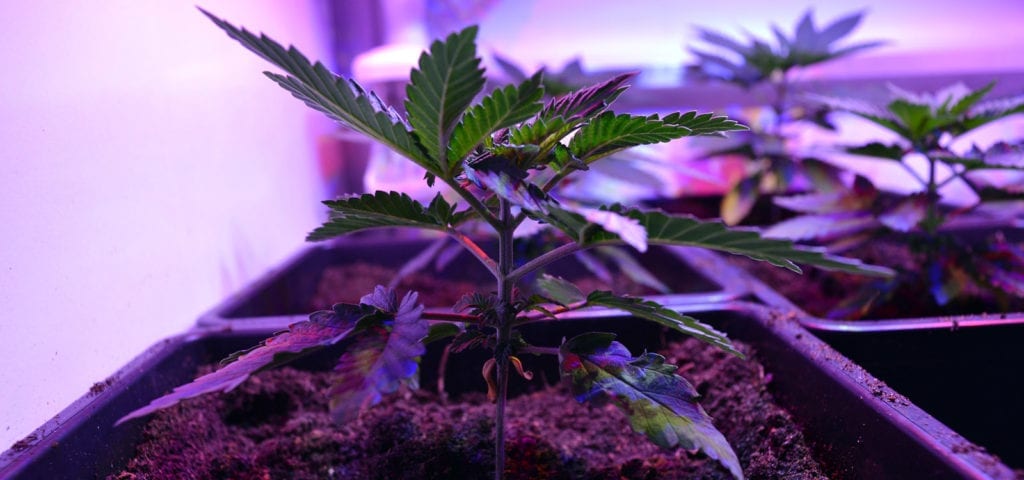

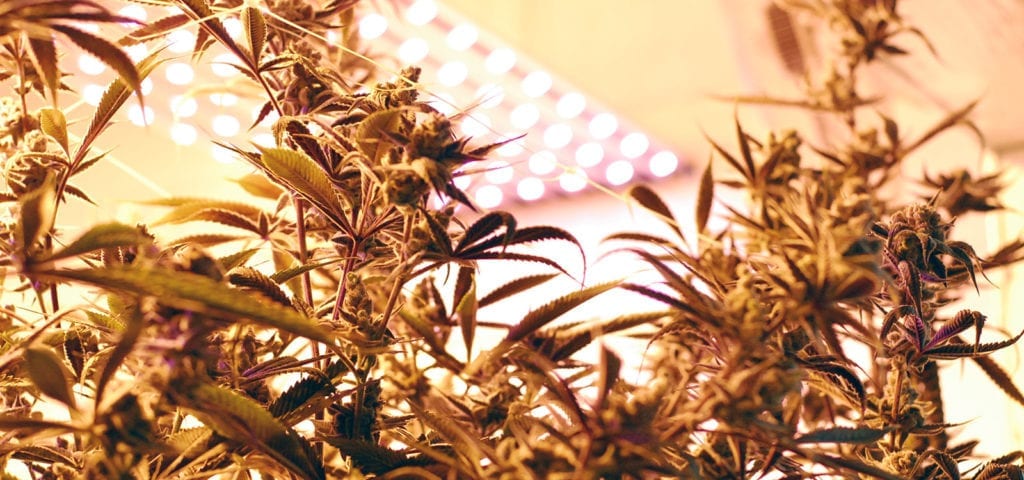




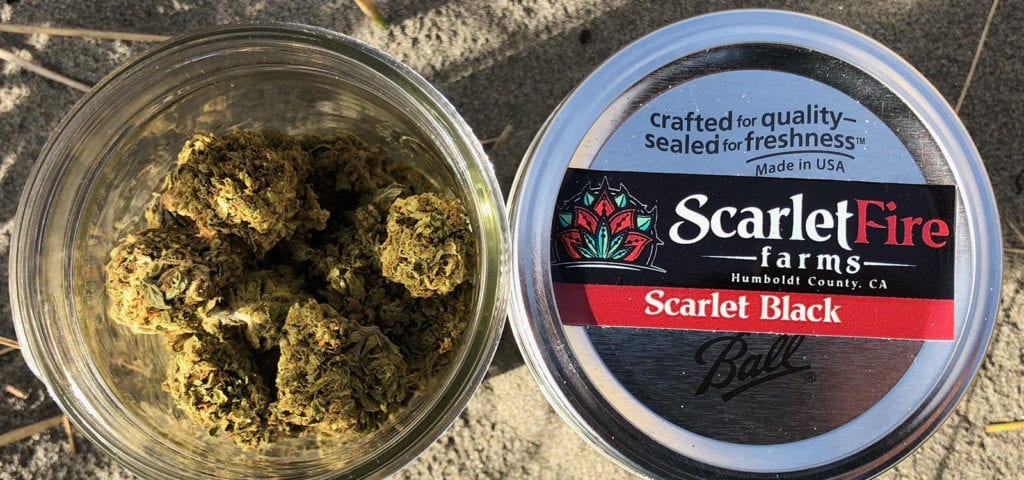
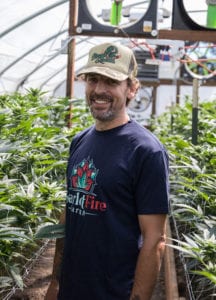 A clear favorite of everyone on the review team who sampled it was Scarlet Fire Farms of Humboldt County. Owner, breeder and lead gardener Bryan Sayre not only puts incredible effort into growing his individual plants, but his efforts start far before planting as he is also the breeding mastermind behind
A clear favorite of everyone on the review team who sampled it was Scarlet Fire Farms of Humboldt County. Owner, breeder and lead gardener Bryan Sayre not only puts incredible effort into growing his individual plants, but his efforts start far before planting as he is also the breeding mastermind behind 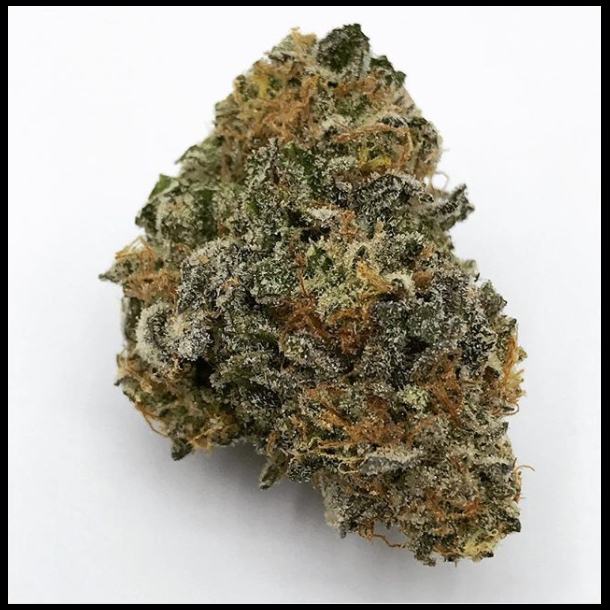 Scarlet Fire Farms is a family owned and operated farm tucked in the lush, water rich mountains of Six Rivers National Forest in Northeast Humboldt County, California. They have been producing cannabis since 2007.
Scarlet Fire Farms is a family owned and operated farm tucked in the lush, water rich mountains of Six Rivers National Forest in Northeast Humboldt County, California. They have been producing cannabis since 2007.